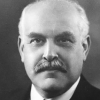An elegant writer has observed, that wit may do very well for a mistress, but that he should prefer reason for a wife. He that deserts the latter, and gives himself up entirely to the guidance of the former, will certainly fall into many pitfalls and quagmires, like him, who walks by flashes of lightning, rather than by the steady beams of the sun.
Charles Caleb "C. C." Colton (1780-1832) English cleric, writer, aphorist
Lacon: Or, Many Things in Few Words, Vol. 1, § 71 (1820)
(Source)
Quotations about:
reliability
Note not all quotations have been tagged, so Search may find additional quotes on this topic.
The question is then how can we decide what anybody in the ancient world said. We can’t. We wish we could. It would be nice if we could. You would like to think that because you can go to the store and buy an edition of Plato that you are actually reading Plato, but the problem is that we just do not have the kind of evidence that we need in order to establish what ancient authors actually wrote. In some cases, we have all these data, and sometimes we have just one manuscript. Sometimes we have a manuscript that was written two-thousand years later, and that’s it! So, as much as we would like to be able to say we know what ancient authors actually wrote, we often just do not know.
Bart D. Ehrman (b. 1955) American Biblical scholar, author
“The Textual Reliability of the New Testament: A Dialogue between Bart Ehrman and Daniel Wallace,” Greer-Heard Point-Counterpoint Forum in Faith and Culture (2008-04-04/05)
(Source)
Reprinted in Robert Stewart, ed., The Reliability of the New Testament (2011).
Much of the joy of science is the joy of solid work done by skilled workmen. Many of us are happy to spend our lives in collaborative efforts where to be reliable is more important than to be original. There is a great satisfaction in building good tools for other people to use.
Freeman Dyson (1923-2020) English-American theoretical physicist, mathematician, futurist
Disturbing the Universe, ch. 1 (1979)
(Source)
The individual source of the statistics may easily be the weakest link. Harold Cox tells a story of his life as a young man in India. He quoted some statistics to a Judge, an Englishman, and a very good fellow. His friend said, “Cox, when you are a bit older, you will not quote Indian statistics with that assurance. The Government are very keen on amassing statistics — they collect them, add them, raise them to the nth power, take the cube root and prepare wonderful diagrams. But what you must never forget is that every one of those figures comes in the first instance from the chowty dar (village watchman), who just puts down what he damn pleases.”
Josiah Stamp (1880-1941) English industrialist, economist, statistician, banker
Some Economic Factors in Modern Life (1929)
(Source)
Quoting Harold Cox (1859-1936), English economist and politician.
I’ll have no dealings
With law-breakers, critics of the government:
Whoever is chosen to govern should be obeyed ––
Must be obeyed, in all things, great and small,
Just and unjust! O Haimon,
The man who knows how to obey, and that man only,
Knows how to give commands when the time comes.
You can depend on him, no matter how fast
The spears come: he’s a good soldier, he’ll stick it out.
Anarchy, anarchy! Show me a greater evil!
This is why cities tumble and the great houses rain down,
This is what scatters armies!
No, no: good lives are made so by discipline.
We keep the laws then, and the lawmakers.Sophocles (496-406 BC) Greek tragic playwright
Antigone, l. 665ff [Creon] (441 BC) [tr. Fitts/Fitzgerald (1939), l. 525ff]
(Source)
Alt. trans.:
But whoso wantonly
Or strains the laws or sets about dictating
To those who rule, it is not possible
That such a one should ever earn my praise.
No! when a city constitutes a chief,
It well befitteth all men to obey
His great or small, just or unjust behests.
And I should confidently trust that he,
Whose law is such, would from fixed habitude
Both wisely rule and loyally obey.
he too, when posted in the battled line,
Amid the storm of fight, would keep his ground,
Brave and unswerving by his comrade's side.
There is no greater ill than disobedience.
'Tis this which ruins cities: this it is
Which works the downfall of a noble house.
And when, in battle, spear is locked with spear,
'Tis this again which breaks and routes the phalanx.
But when men keep the line, their discipline
For the most part ensures their safety. Thus,
It is our duty still to aid the laws.
[tr. Donaldson (1848)]
But he who overbears the laws, or thinks
To overrule his rulers, such as one
I never will allow. Whome'er the State
Appoints must be obeyed in everything,
But small and great, just and unjust alike.
I warrant such a one in either case
Would shine, as King or subject; such a man
Would in the storm of battle stand his ground,
A comrade leal and true; but Anarchy --
What evils are not wrought by Anarchy!
She ruins States, and overthrows the home,
She dissipates and routs the embattled host;
While discipline preserves the ordered ranks.
Therefore we must maintain authority.
[tr. Campbell (1873)]
But he that wantonly defies the law,
Or thinks to dictate to authority,
Shall have no praise from me. What power soe'er
The city hath ordained, must be obeyed
In little things and great things, right or wrong.
The man who so obeys, I have good hope
Will govern and be governed as he ought,
And in the storm of battle at my side
Will stand a faithful and a trusty comrade.
But what more fatal than the lapse of rule?
This ruins cities, this lays houses waste,
This joins with the assault of war to break
Full numbered armies into hopeless rout;
And in the unbroken host 'tis nought but rule
That keeps those many bodies from defeat,
I must be zealous to defend the law.
[tr. Storr (1859)]
But if anyone oversteps and does violence to the laws, or thinks to dictate to those in power, such a one will never win praise from me. No, whomever the city may appoint, that man must be obeyed in matters small and great and in matters just and unjust. And I would feel confident that such a man would be a fine ruler no less than a good and willing subject, and that beneath a hail of spears he would stand his ground where posted, a loyal and brave comrade in the battle line. But there is no evil worse than disobedience. This destroys cities; this overturns homes; this breaks the ranks of allied spears into headlong rout. But the lives of men who prosper upright, of these obedience has saved the greatest part. Therefore we must defend those who respect order.
[tr. Jebb (1891)]
But if any one transgresses, and does violence to the laws, or thinks to dictate to his rulers, such an on can win no praise from me. No, whomsoever the city may appoint, that man must be obeyed, in little things and great, in just things and unjust; and I should feel sure that one who thus obey would be a good ruler no less than a good subject, and in the storm of spears would stand his ground where he was set, loyal and dauntless at his comrade's side. But disobedience is the worst of evils. This it is that ruins cities; this makes homes desolate; by this, the ranks of allies are broken into headlong rout; but, of the lives whose course is fair, the greater part owes safety to obedience. Therefore we must support the cause of order.
[tr. Jebb (1917), l. 661ff]
To transgress
Or twist the law to one’s own pleasure, presume
To order where one should obey, is sinful,
And I will have none of it.
He whom the State appoints must be obeyed
To the smallest matter, be it right -- or wrong.
And he that rules his household, without a doubt,
Will make the wisest king, or, for that matter,
The staunchest subject. He will be the man
You can depend on in the storm of war,
The faithfullest comrade in the day of battle.
There is no more deadly peril than disobedience;
States are devoured by it, homes laid in ruins,
Armies defeated, victory turned to rout.
While simple obedience saves the lives of hundreds
Of honest folk. Therefore, I hold to the law,
And will never betray it.
[tr. Watling (1947), l. 559ff]
But whoever steps out of line, violates the laws
or presumes to hand out orders to his superiors,
he'll win no praise from me. But that man
the city places in authority, his orders
must be obeyed, large and small,
right and wrong. Anarchy --
show me a greater crime in all the earth!
She, she destroys cities, rips up houses,
breaks the ranks of spearmen into headlong rout.
But the ones who last it out, the great mass of them
owe their lives to discipline. Therefore
we must defend the men who live by law.
[tr. Fagles (1982), l. 741ff]
So, if someone goes too far and breaks the law,
Or tries to tell his masters what to do,
He will have nothing but contempt from me.
But when a city takes a leader, you must obey,
Whether his commands are trivial, or right, or wrong.
But reject one man ruling another, and that's the worst.
Anarchy tears up a city, divides a home,
Defeats an alliance of spears.
But when people stay in line and obey,
Their lives and everything else are safe.
For this reason, order must be maintained.
[tr. Woodruff (2001), l. 662ff]
He who violates the laws of the gods and his city, or wants to command its leaders, will never gain my respect. We must obey those whom the city has ordained to be its leaders. We should obey them, unquestioningly, in all things, minor or great, those we agree with and those we oppose. I believe such a man would govern well and he’d also be an obedient servant; and he’d stay at his post even in the hurricane of war, honourably, bravely defending his country. There’s no worse evil than anarchy. Anarchy destroys nations, my son. Anarchy destroys homes. Anarchy turns the spears of allies into fleeing cowards. Those men left standing, the survivors, have been saved by discipline. That’s why each man must protect, with all his might, law and order.
[tr. Theodoridis (2004)]
But anyone who’s proud
and violates our laws or thinks he’ll tell
our leaders what to do, a man like that
wins no praise from me. No. We must obey
whatever man the city puts in charge,
no matter what the issue -- great or small,
just or unjust. For there’s no greater evil
than a lack of leadership. That destroys
whole cities, turns households into ruins,
and in war makes soldiers break and run away.
When men succeed, what keeps their lives secure
in almost every case is their obedience.
That’s why they must support those in control.
[tr. Johnston (2005), l. 757ff ]
And bad luck reveals those who are not real friends, but just happen to be so because of utility.
[ἡ δ᾽ ἀτυχία δηλοῖ τοὺς μὴ ὄντως [20] ὄντας φίλους, ἀλλὰ διὰ τὸ χρήσιμον τυχόντας.]
Aristotle (384-322 BC) Greek philosopher
Eudemian Ethics [Ἠθικὰ Εὐδήμεια], Book 7, ch. 2 / 1238a.19-20 [tr. Reeve (2021)]
(Source)
(Source (Greek)). Alternate translations:
Misfortune shows those who are not really friends, but friends only for some accidental utility.
[tr. Solomon (1915)]
Misfortune shows those who are not friends really but only because of some casual utility.
[tr. Rackham (1981)]
But misfortune shows those who are friends not really but because of chance utility.
[tr. Simpson (2013)]
One must be fond of people and trust them if one is not to make a mess of life, and it is therefore essential that they should not let one down. They often do. The moral of which is that I must, myself, be as reliable as possible, and this I try to be. But reliability is not a matter of contract — that is the main difference between the world of personal relationships and the world of business relationships. It is a matter for the heart, which signs no documents. In other words, reliability is impossible unless there is a natural warmth. Most men possess this warmth, though they often have bad luck and get chilled. Most of them, even when they are politicians, want to keep faith. And one can, at all events, show one’s own little light here, one’s own poor little trembling flame, with the knowledge that it is not the only light that is shining in the darkness, and not the only one which the darkness does not comprehend.
E. M. Forster (1879-1970) English novelist, essayist, critic, librettist [Edward Morgan Forster]
“What I Believe,” The Nation (16 Jul 1938)
(Source)
How many things have been denied one day, only to become realities the next!
Jules Verne (1828-1905) French novelist, poet, playwright
From the Earth to the Moon (1865)
(Source)
If the automobile had followed the same development cycle as the computer, a Rolls-Royce would today cost $100, get a million miles per gallon, and explode once a year, killing everyone inside.
Robert X. Cringely (contemp.) American technology columnist [pseud. for Mark Stephens and others]
“Notes from the Field,” InfoWorld (6 Mar 1989)










